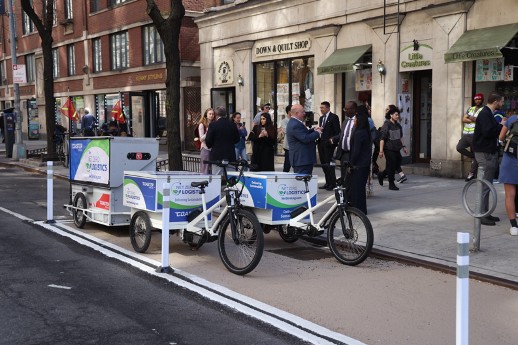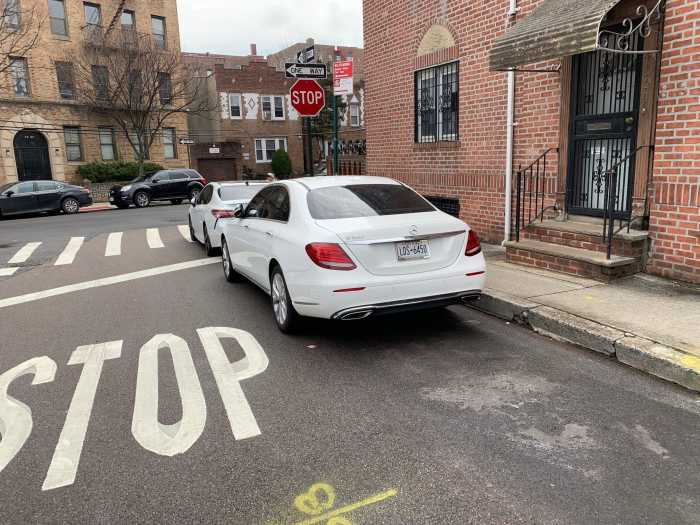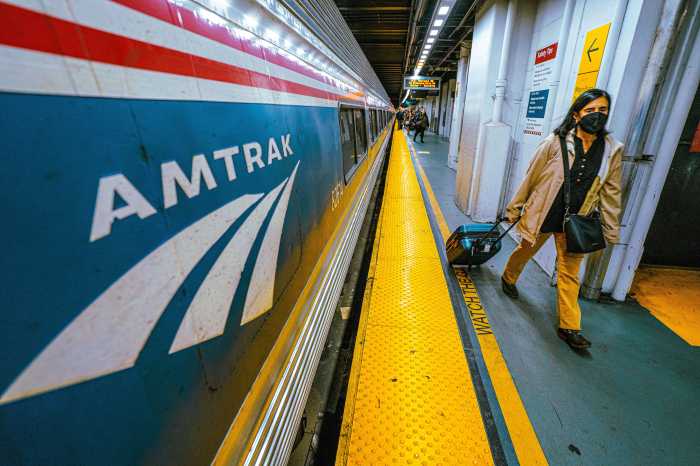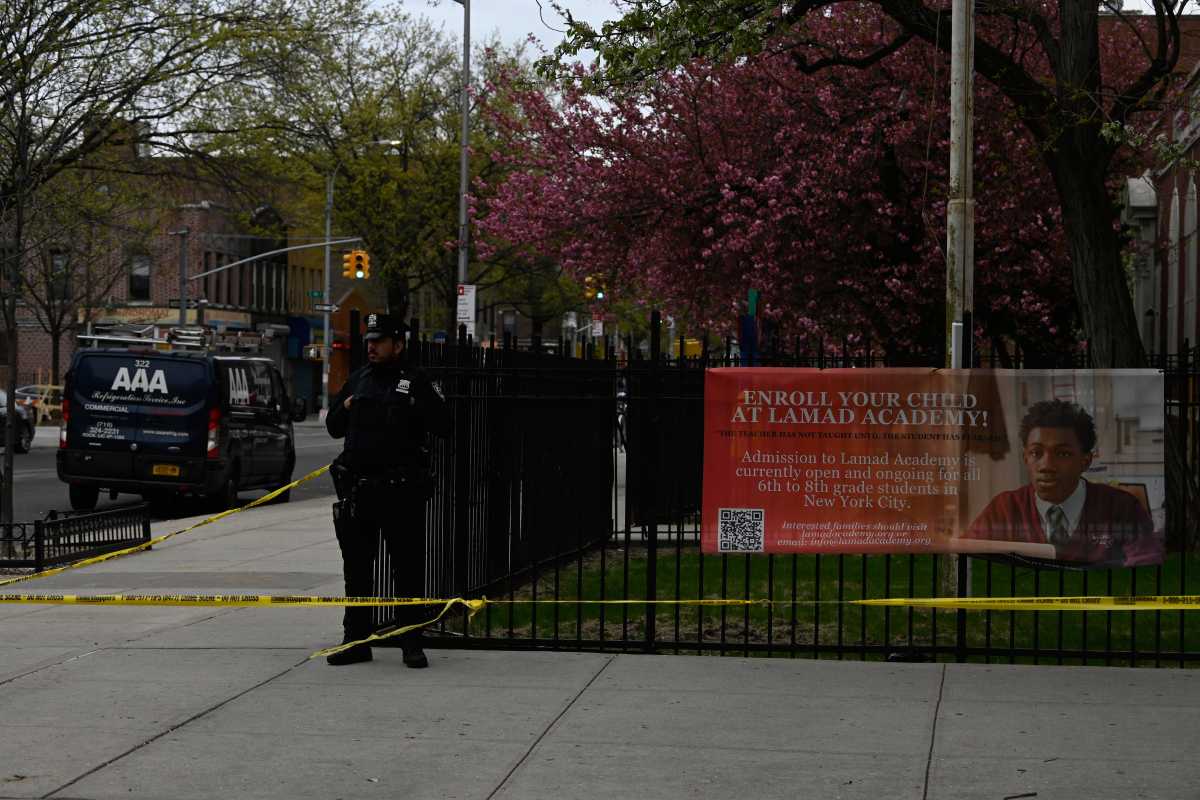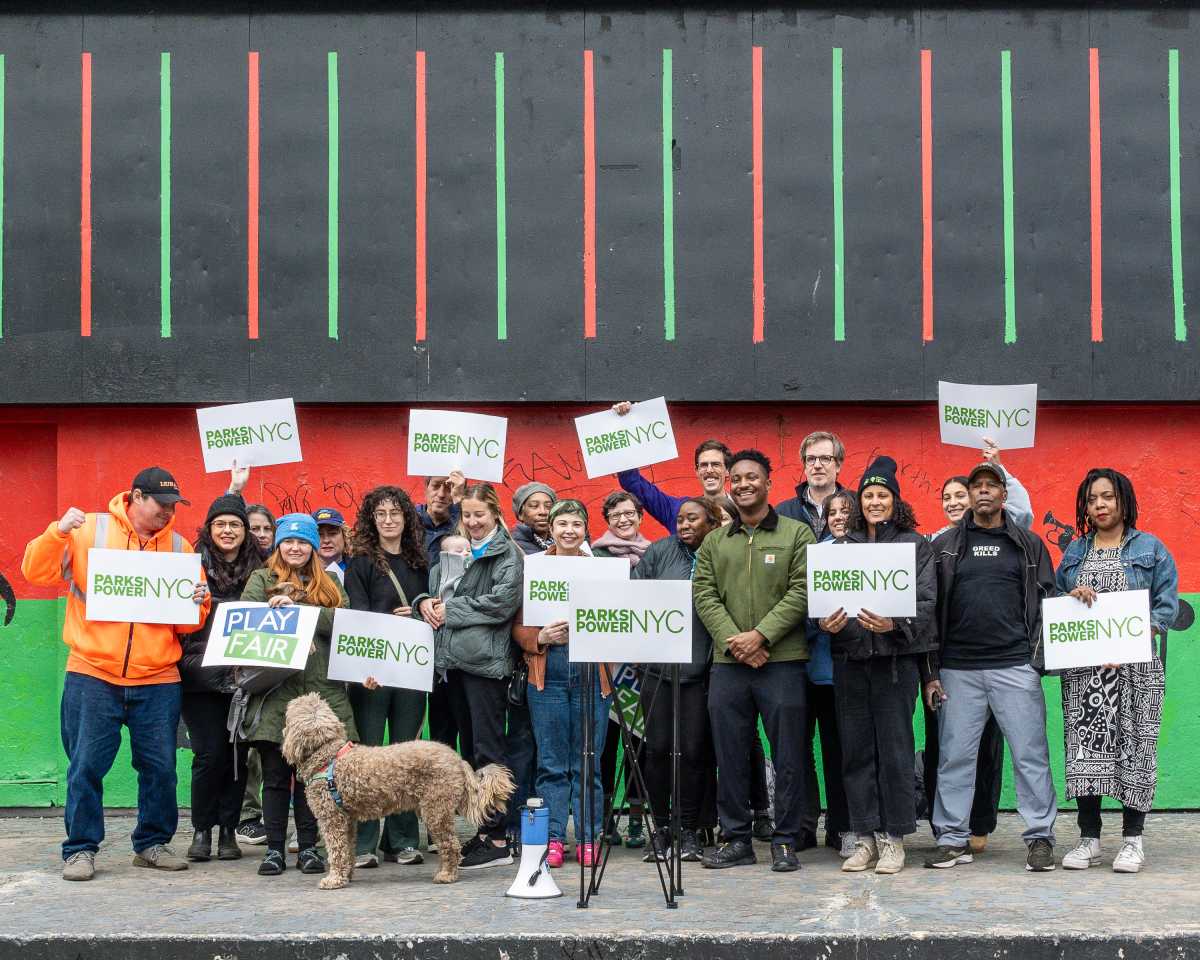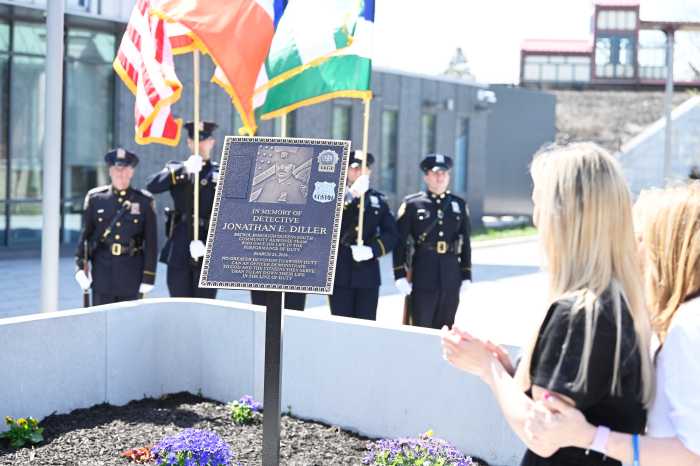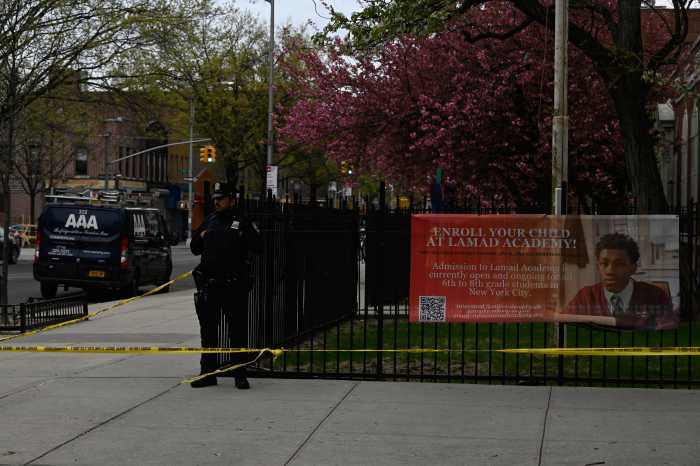
Gov. Andrew Cuomo on Monday signed legislation to grant New York public land for the proposed LaGuardia Airport AirTrain to Willets Point, Queens.
With the bill signed, environmental review work on the project is planned to begin this summer. While opponents have criticized virtually every element of the project — from its proposed route, to estimated travel times and potential costs — Cuomo and supporters hailed it as a desperately needed, reliable rail link to the airport under renovation.
“How can you not have a rail train to the city from a New York airport? I mean, it’s just incomprehensible, right?” said Cuomo at the bill signing at 7 World Trade Center. “So this component in and of itself is very important.”
The Port Authority has budgeted $1.5 billion to build the AirTrain on a nearly 2-mile right of way that was carved on public land, with the idea of avoiding private property and the ensuing backlash from residents.
Port Authority Executive Director Rick Cotton estimates the AirTrain will provide a trip under 30 minutes from either Penn Station or Grand Central Terminal to LaGuardia, with riders either taking the 7 subway line or the Long Island Rail Road to a “seamless” transfer at a new AirTrain hub near the Mets-Willets Point station. Construction is anticipated to start in 2020 and conclude in 2022.
“With no rail link, millions of passengers too frequently face the inevitable congestion on the roadways and unpredictable delays in reaching the airport,” Cotton said. “They never know what the travel time to LaGuardia will be, whether it will be the normal experience or whether it will be two, three or more times what they anticipate.”
Cotton said the Long Island Rail Road journey from Penn Station to Mets-Willets Point can be completed in 16 minutes, with the AirTrain leg of the trip taking another 6 minutes.
Some opponents are skeptical of those numbers. Citing the LIRR’s own website, the reverse trip, from the Mets-Willets Point station to Penn, can be between 17 and 19 minutes.
Transportation blogger Yonah Freemark argued that the location for the AirTrain is poor, since the Port Washington branch is not accessible to the rest of the LIRR network. He said an extension of the N, or an AirTrain to Woodside or Jamaica, could have provided more meaningful connections. He also pointed out that off-peak LIRR service currently stops at Mets-Willets Point every half hour.
“I think the public deserves the ability to compare different options,” Freemark said. “Frankly, the governor’s office put together one proposal, one route, without giving anyone the ability to consider any other points for what will be a multibillion-dollar project.”



